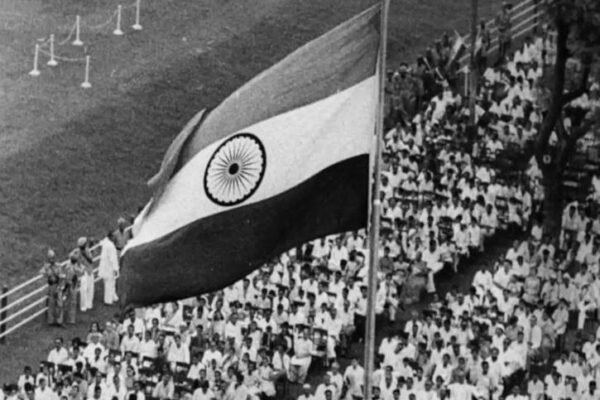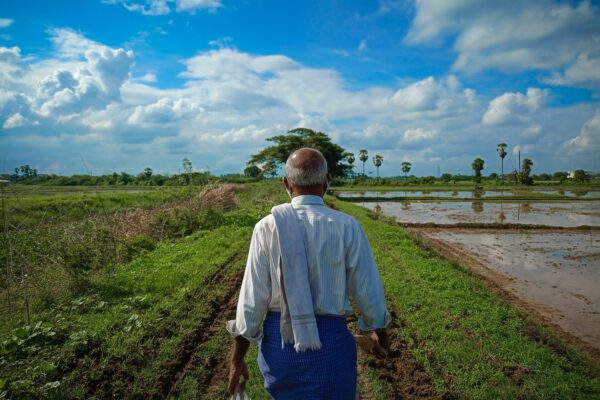If we stand by and do nothing, it will be our children who ask us what we were doing when Muslims were being slaughtered.
If we stand by and do nothing, it will be our children who ask us what we were doing when Muslims were being slaughtered.
Clashes have erupted in Delhi in the wake of the anti-Muslim Citizens Amendment Bill on Sunday. Since then, Hindu mobs have targeted Muslim homes, shops, and mosques. At least 23 people have died during the riots, with fears that it could turn into something similar to the the anti-Sikh riots of 1984, in which 3,000 Sikhs were killed. In the backdrop, India’s extremist Bharatiya Janata Party (BJP) continues to preside over the lockdown of Kashmir, which has been in effect for over six months.
Once more we watch from distant shores, and once more we face the obligation to raise our voices against tyranny.
Here’s what you can do to help:
Lobbying politicians
Lord Ahmad of Wimbledon, the Minister of State for South Asia has at present said nothing on the violence in India, despite having met with Vikas Swarup (Secretary at India’s Ministry of External Affairs) on Monday.
Lord Ahmad is currently attending the Human Rights Council at Geneva, which is running until 20 March. This is an ideal forum to raise the Delhi riots. You can tweet at him here or email him at ahmadt@parliament.uk.
Fortunately, British Muslims also have allies among politicians who can raise their voices in the corridors of power. The All Party Parliamentary Group (APPG) on British Muslims is a good place to start. You can write (and tweet) to the members below in encouraging terms, urging them to themselves speak out against the riots and to lobby Ministers to pressurise the Indian government:
- Wes Streeting MP (Chair of the APPG) — Email: wes@redbridgelabour.org.uk
- Mark Eastwood MP (Co-Chair of the APPG) — Email: mark.eastwood.mp@parliament.uk
- Tan Dhesi MP — Email: tan.dhesi.mp@parliament.uk
- Kirsten Oswald MP — Email: kirsten.oswald.mp@parliament.uk
- Steve Baker MP — Email: steve.baker.mp@parliament.uk
- Mark Logan MP — Email: mark.logan.mp@parliament.uk
- Colleen Fletcher MP — Email: colleen.fletcher.mp@parliament.uk
We should also continue to encourage the APPG on Kashmir. Debbie Abrahams MP has previously led a delegation to meet with Imran Khan, Prime Minister of Pakistan, to discuss Kashmir, and has also criticised the decision to revoke Article 370. Ms Abrahams was later denied entry to India.
Finally, you can, of course, write to your local MP.
Calling out supporters of Modi’s toxic narratives
Prime Minister Modi’s dangerous brand of nationalism has enabled the violence against Muslims. It took him 3 days to publicly address the riots. His fans in Britain need to be held accountable for supporting Modi, who was once banned from the US because of his links to Hindu extremists.
Bob Blackman MP, and Chair of the APPG on British Hindus, strongly endorsed the revocation of Article 370. Mr Blackman’s Twitter page features a picture of him with Modi, highlighting his support for the right-wing leader.
Unfortunately, the APPG on British Hindus supported the revocation of Article 370, and rejected the APPG on British Muslim’s proposed definition of Islamophobia.
British Hindu civil society organisations have also backed Modi and his policies. The Hindu Council UK, an umbrella body claiming to represent all Hindus in the UK, endorsed the revocation of Article 370. The Friends of India Society UK has also supported the Citizens Amendment Bill.
These individuals and organisations need to be called out for reinforcing Modi’s nationalism, and should unequivocally condemn the violence against Muslims.
Boycott Indian products
Boycotts have been successful in bringing about change during the South African apartheid. A well-organised, wide and consistent boycott can clearly be effective. Consider boycotting the following:
- Food: If you are from the ethnically South-Asian community, it is likely that you will have some Indian produce at home. Brands such as Natco import chilli, turmeric and other produce from India.
- Clothing: India’s textiles industry contributed a massive 2% to the Gross Domestic Product (GDP) of India. Major clothing brands such as Zara have supply chains based in India. However, a blanket boycott on such brands would not be effective as large brands have supply chains from across the world, so it is always worth checking the label.
- Entertainment: Popular Indian TV outlets are often watched by South-Asian Muslims for their soaps and entertainment show. A few examples of India-based channels include B4U, Star, and Zee TV. Likewise, Bollywood films have a large Muslim audience.
The above is not an exhaustive list, but is designed to make you more conscientious about what you are consuming. This may not quell the riots or remove Indian boots on the ground in Kashmir, but a loud enough boycott will join the orchestra of condemnation from Muslims around the world.
Remaining just and balanced
The Muslim community knows all too well what it feels like to be vilified due to the actions of a violent minority. We must therefore be careful not to label all Hindus in crude, general terms. We must condemn those who ally themselves with the toxic narratives that have fed into the violence of recent days, and peacefully protest against the bigotry. However, we are obliged as Muslims to be just, lest we subject others to the same cruelty that we ourselves have endured.
“…’My Lord, I am in dire need of whatever good thing You may send me’…”
Surah Qasas, Verse 24





